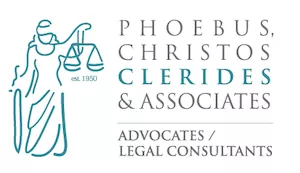- within Transport, Finance and Banking and Employment and HR topic(s)
A concise guide for practitioners and stakeholders
1| Statutory basis
Section 19 of the Administration of Estates Law, Cap. 189 empowers the Court to issue limited grants of representation that are:
- time‑bound (pendentelite),
- restricted to specific assets, or
- confined to a special purpose (adlitem, adcolligenda bona, etc.).
Cypriot courts, following TerzianvTerzian (2003) 1Β ΑΑΔ 1252, look to English probate practice for guidance unless local rules dictate otherwise.
2| When a limited grant is appropriate
| Form | Typical trigger | Ends automatically when... |
|---|---|---|
| Pendete lite | Probate dispute or will contest | Final judgment is delivered |
| Ad litem | Ongoing or impending litigation | The action is finally disposed of |
| Ad colligenda bona | Perishable/endangered assets | Collection and safeguarding complete |
A limited grant should be sought only when (i) no general administrator exists, and (ii) the intended step cannot wait for a full grant.
3| Key principles distilled from case‑law
- Necessity & proportionality – The court will refuse over‑broad applications.
- Neutrality preferred – A nominee should, where possible, be independent (PatsalidesvKyriakides (1985) 2 JSC 613).
- Consent essential – No person can be compelled to accept a grant (NicoletteAretivMarfinPopularBank, App. 178/2011).
- Creditors as administrators – Permitted only exceptionally; the applicant must justify why a neutral nominee is unavailable (Re Atherton'sGoods (1892) P 104).
4| Procedure snapshot
- Ex‑parte affidavit verifying death, absence of full grant, need for limited grant, and written consent of the proposed administrator.
- Filing of a draft order precisely limiting duration, assets and purpose.
- Service on those entitled to a general grant—unless urgency justifies dispensation.
- Security is usually waived for "nil estate" grants.
5| The limited administrator's role
A grantee adlitem or pendentelite:
- acts only for the stated purpose (e.g. serving or receiving statutory notices, defending a claim);
- owes no general fiduciary duties to realise or distribute the estate (AndromachiMinavNBG (Cyprus), App. 376/2011);
- automatically ceases to act once the purpose is fulfilled or the time limit expires.
6| Common pitfalls
- Over‑broad drafting ("to act generally on behalf of the estate").
- Conflicted nominee without cogent explanation.
- Failure to notify relatives entitled to a full grant.
7| Objecting—or not
Valid objections include: an unnecessary grant where a full administrator is ready to act; a plainly conflicted nominee; or an order wider than the stated purpose. Conversely, collateral disputes (e.g. separate settlement agreements) rarely defeat a tightly drafted limited‑grant application.
8| Final thoughts
Limited grants offer a targeted, court‑controlled solution when a procedural dead‑end threatens to stall litigation or statutory processes involving a deceased person. Precision in drafting and thoughtful choice of nominee are the twin safeguards that protect beneficiaries, creditors and third parties alike.
The content of this article is intended to provide a general guide to the subject matter. Specialist advice should be sought about your specific circumstances.


